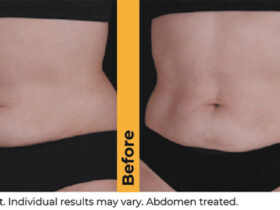 Many people are familiar with the common complications of diabetes, such as vision problems, kidney disease, and nerve damage. However, one lesser-known but significant connection is emerging between diabetes and hearing loss. Research indicates that hearing impairment is twice as common in people with diabetes compared to those without the condition, making it an important health consideration for the millions affected by this metabolic disorder.
Many people are familiar with the common complications of diabetes, such as vision problems, kidney disease, and nerve damage. However, one lesser-known but significant connection is emerging between diabetes and hearing loss. Research indicates that hearing impairment is twice as common in people with diabetes compared to those without the condition, making it an important health consideration for the millions affected by this metabolic disorder.
The relationship between diabetes and hearing loss stems from the condition’s impact on the body’s small blood vessels and nerves. The inner ear, crucial for sound processing, contains thousands of tiny hair cells and blood vessels that depend on proper blood flow and nerve function to work effectively. When diabetes affects these delicate structures, it can lead to gradual hearing deterioration.
High blood glucose levels, characteristic of diabetes, can damage blood vessels throughout the body, including those in the inner ear. This damage, known as diabetic microangiopathy, reduces blood flow to the cochlea, the snail-shaped part of the inner ear responsible for converting sound waves into electrical signals that the brain interprets as sound. Without adequate blood flow, these vital structures can become damaged or die, resulting in permanent hearing loss.
Additionally, diabetes can damage the auditory nerves that carry sound signals from the ear to the brain. This type of damage, called diabetic neuropathy, can interfere with the proper transmission of sound information, leading to difficulty understanding speech, especially in noisy environments. The combination of vascular and nerve damage creates a perfect storm for hearing problems in diabetic patients.
Age is another significant factor in this relationship. As both diabetes and hearing loss become more common with age, older adults with diabetes face an even higher risk of developing hearing problems. This makes regular hearing screenings particularly important for this population. Studies show that by age 65, adults with diabetes are more than twice as likely to experience hearing loss compared to their non-diabetic peers.
Prevention and management strategies play crucial roles in protecting hearing health for people with diabetes. Maintaining good blood glucose control through proper medication, diet, and exercise can help minimize damage to the small blood vessels and nerves throughout the body, including those in the ears. Regular medical check-ups should include hearing assessments, especially for those over 50 or who have had diabetes for several years.
Warning signs of hearing loss may include:
. Frequently asking others to repeat themselves
. Difficulty following conversations in noisy environments
. Turning up the volume on televisions or phones higher than usual
. Ringing in the ears (tinnitus)
. Feeling that others are mumbling when they speak
. Struggling to hear high-pitched sounds
. Having trouble locating where sounds are coming from
Healthcare providers recommend that people with diabetes have their hearing tested every year, just as they undergo regular eye examinations. Early detection of hearing loss can lead to more effective management through hearing aids or other interventions, helping maintain quality of life and social connections. Modern hearing aids are increasingly sophisticated, with many featuring bluetooth connectivity and smartphone integration for easier management.
The impact of hearing loss extends beyond just difficulty in communication. It can lead to social isolation, depression, and cognitive decline, particularly in older adults. For people with diabetes, who may already be managing multiple health conditions, addressing hearing loss early can prevent these additional complications and maintain overall well-being. Research suggests that untreated hearing loss may also increase the risk of falls and accidents, making early intervention even more critical.
As research continues to explore the connection between diabetes and hearing loss, one thing remains clear: awareness and proactive management of both conditions are essential. By understanding this link, people with diabetes can take steps to protect their hearing health while managing their blood glucose levels, ensuring better overall health outcomes for the future. Working closely with healthcare providers, including both endocrinologists and audiologists, can help create a comprehensive care plan that addresses both conditions effectively.
At Hear Sarasota Audiology we are dedicated to providing quality hearing healthcare services to our patients. Dr. Massey designed the clinic to combine the best elements of a sound studio, audiology clinic, and research facility to create the most accurate testing and fitting facility in the state. We offer a wide range of services, including hearing assessments, hearing aid fittings, and rehabilitation services. We are committed to providing our patients with the best possible care and helping them to improve their quality of life.
3333 Clark Road, Suite 170, Sarasota FL 34231
(941) 312-4274
www.hearsarasota.com









